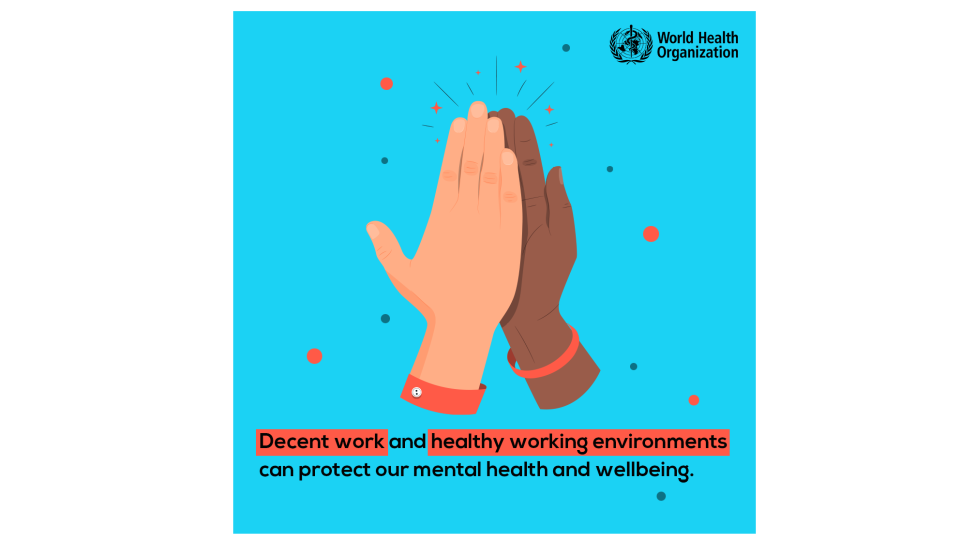On World Mental Health day ICN joins global campaign to address workplace-related mental health needs

On World Mental Health day (10 October) the International Council of Nurses (ICN) has joined a global campaign to address the mental health needs of health care workers worldwide.
The campaign, alongside United for Global Mental Health, Africa CDC and the International Federation of Medical Students, will amplify the voices of nurses and other health care workers to raise awareness about the factors that make them particularly vulnerable to a decline in mental health and well-being.
During the COVID-19 pandemic the mental health of nurses was especially challenged, with at least 25% of health and care workers reporting symptoms of anxiety, depression and burnout. The situation for nurses working in life and death scenarios was particularly damaging for their mental wellbeing.
But since the pandemic, the mental health crisis in the healthcare sector has continued, compounded by staff shortages, low pay and stressful working conditions.
ICN President Dr Pamela Cipriano said: “The normal everyday stresses nurses encounter and the harmful working conditions they face, including excessive workloads, stigma, discrimination and violence, pose serious risks to their mental health.
‘These stressors, which were exacerbated by the COVID-19 pandemic, have led to burnout, with 40% of health care workers under 55 feeling exhausted, and more than 10% contemplating leaving patient care.
‘We are therefore calling for immediate action to create safer, more supportive environments for nurses, ensuring improvements in both physical and mental health that will mean health care will continue to be sustainable. These steps are fundamental to retaining a healthy workforce and attracting new recruits to this amazing profession.”
Having in recent days been in direct contact with national nurses’ associations in the Middle East including Lebanon, ICN Chief Executive Officer Howard Catton added:
“We cannot underestimate the huge mental strain on our colleagues who are working in conflict zones under immense pressures, the like of which most of us will fortunately never encounter. The extent of such traumatisation cannot be over-estimated, we have had nurses tell us of seeing horrific sights that cannot be unseen. No nurse should ever be a martyr for simply doing their job.
‘We have heard this week direct testimony from our colleagues in Lebanon on the immense toll the conflict there is having on both the physical and mental health of nurses and other health workers.
‘In all conflict zones their mental wellbeing is at risk, and we must do everything we can to help bring about the ceasefires that are the only way to end the current cycle of violence we are witnessing around the world.”
ICN wants governments and employers to prioritise the mental wellbeing of nurses and other health care workers by ensuring there are safe staffing levels, addressing workplace violence and strengthening access to occupational health services.
Mr Catton added: “On this World Mental Health Day ICN urges all stakeholders to take immediate action to protect the health and dignity of nurses worldwide. I am also particularly concerned about the psychological wellbeing of nursing students and early career nurses who may be so adversely affected by what they see that they will leave the profession altogether. By fostering mental health at work, we can create a more resilient and compassionate healthcare system for us all.”
ICN has this year produced new guidance on the development of mental health nursing for professional organizations, health care providers, regulators, policymakers and the public.
Its Charter for Change presents ten policy actions that governments and employers must take to create and sustain health care systems that are safe, affordable, accessible and responsive, and shift nurses from being invisible to invaluable.
See here for more on ICN joining a global campaign to prioritise the mental health of health professionals with our partners the United for Global Mental Health, Africa CDC, and the International Federation of Medical Students’ Associations (IFMSA).